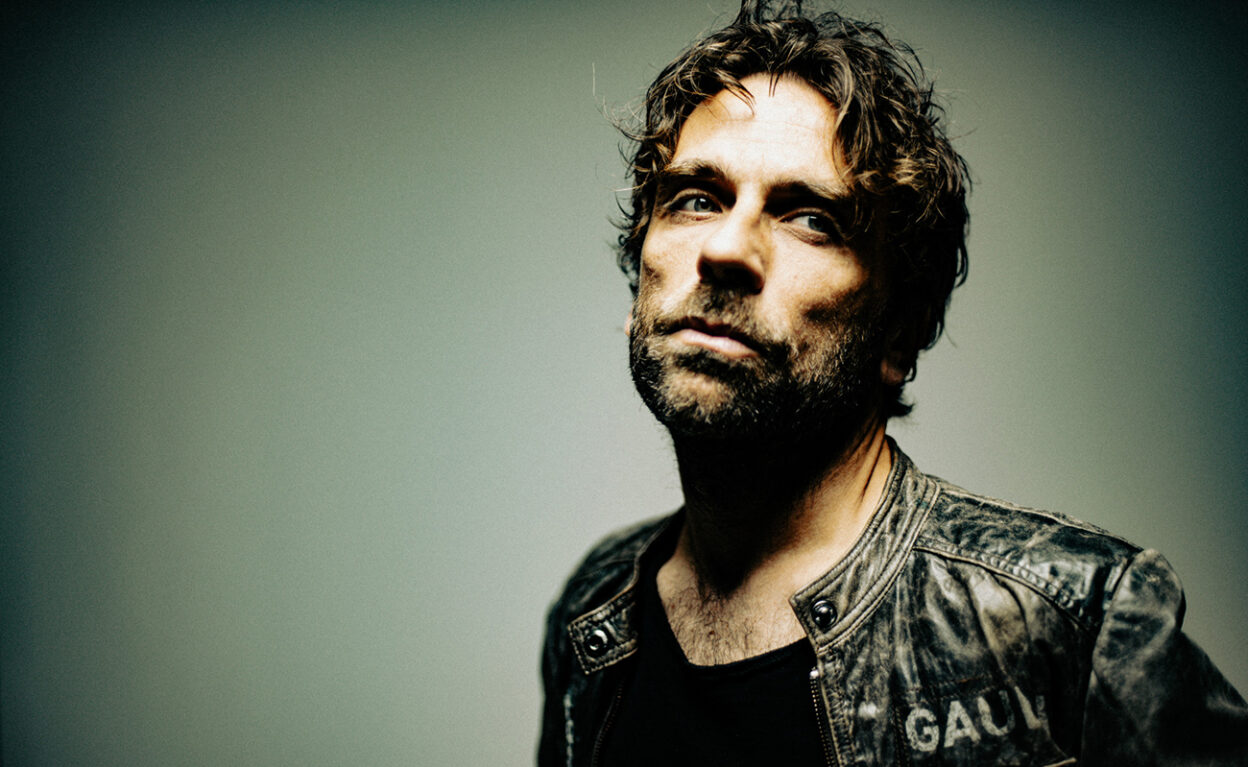Sicilian singer-songwriter Fabrizio Cammarata has returned with Insularities — a quietly profound exploration of connection, isolation, transformation, and memory. The record invites listeners into a space between light and shadow, where grief and love share the same breath.
Insularities features two deeply personal companion tracks: the intimate and vulnerable “Água E Sal,” a song of love and grief featuring Casadilego, written in the wake of a close friend’s passing, and “The Woman In Me,” a reflection on reconciling the many selves we hold within — the feminine, the childlike, the hidden.
Across the album, Cammarata focuses on tone, breath, and emotional truth, guiding listeners into the delicate terrain of the self and its need for connection. Over his career, Fabrizio has shared stages with Patti Smith, Ben Harper, Iron & Wine, Villagers, and The Paper Kites, performed at festivals from SXSW to Reeperbahn, and even joined Damien Rice and Daniel Johnston on stage.
In this conversation with XS Noize, Fabrizio discusses the emotional origins of Insularities, his evolving creative process, and the enduring beauty of the album as a complete art form.
What inspired your latest double release, “Água E Sal / The Woman In Me”?
Both songs come from different but connected emotional worlds. “Água E Sal” was born from a summer of silence, after the loss of a dear friend. It’s a song about grief disguised as love — or maybe love disguised as grief. It holds that contradiction: tears and sweat, absence and presence.
“The Woman In Me,” on the other hand, is about reconciling with the parts of ourselves we often neglect or reject — the feminine side, the inner child, the outcast within. Together, these songs are like two mirrors facing each other: one external, one internal.
Walk us through your mindset as you entered the studio.
I wanted the recordings to feel alive — imperfect, human, almost like breathing. For “Água E Sal,” the studio became an island of its own. We recorded in as few takes as possible, trying to preserve the intimacy of the night the song was born. Casadilego’s whispering lines nearly moved me to tears while tracking — and that emotion stayed on tape.
“The Woman In Me” was the opposite: an act of surrender to something larger. Recording with the Berlin choir Cantus Domus and Casadilego was overwhelming in the best way. I felt as if all the inner voices I was singing about had come to life around me.
Do these songs feel closer to your true self than your earlier work?
Yes, I think this is the closest I’ve ever been to my core. I’ve stopped trying to fit into any genre or language — instead, I let the emotion decide the form. These songs are multilingual, multi-shaped, because so am I.
Who are the writers and artists that inspire you?
Leonard Cohen for empathy, Bob Dylan for freedom, Nick Drake for fragile honesty, and Fabrizio De André for storytelling. But also poets — Rilke, Szymborska, García Lorca — and lately, psychoanalysts like Recalcati and Jung. They’ve all helped me find the music in inner voices.
Does it bother you when people ask what your songs mean?
Not at all. But I rarely give a direct answer, because the moment a song is released, it’s no longer mine. I love hearing what listeners think it means — it’s like seeing my own reflection in a completely different mirror.
Has the concept of the album changed for you in a world of singles?
Maybe for the industry, yes. But for me, Insularities could only exist as an album. It’s like a map of an archipelago — each song is an island, but they all belong to the same sea. I believe people still crave the journey, not just the postcard.
How did you first get started in music?
When I was a kid, I saw the “Johnny B. Goode” scene in Back to the Future and thought, I want that feeling. I’ve since heard John Mayer say the same thing — that movie must have sparked something in a whole generation. Soon after, I discovered Leonard Cohen and Bob Dylan, and realised words could be just as powerful as sound. That combination became my life.
Tell us about growing up in Palermo, Sicily.
I’m from Palermo — an island that’s always been a crossroads of cultures: Arab, Norman, Spanish, Greek. Growing up there teaches you to live with contradiction and beauty side by side.
Did your hometown shape your sound?
Completely. The Mediterranean runs through my veins — its light, its melancholy, its longing. Sicily teaches you about coexistence: joy and sorrow, sacred and profane, life and death. My music carries all of that.
What inspires your writing these days?
Everything that makes me feel alive — silence, films, poetry, human encounters, therapy sessions, dreams. Lately, I’ve been fascinated by internal landscapes: how our inner worlds reflect the outer ones.
Can you describe your songwriting process?
It always begins with the voice — a sound, a syllable, a word that feels like it’s carrying a secret. I follow it without questioning too much. The melody arrives first, and the meaning reveals itself later, like an island emerging from the fog.
What’s next for you?
A new European tour begins in January 2026, taking Insularities across the continent.
For those in London, I’ll be performing on April 11th at the West Hampstead Arts Club — a night that already feels very special. It will be a celebration, a homecoming of sorts, and a chance to share these songs where they truly come alive: on stage.


Be the first to comment